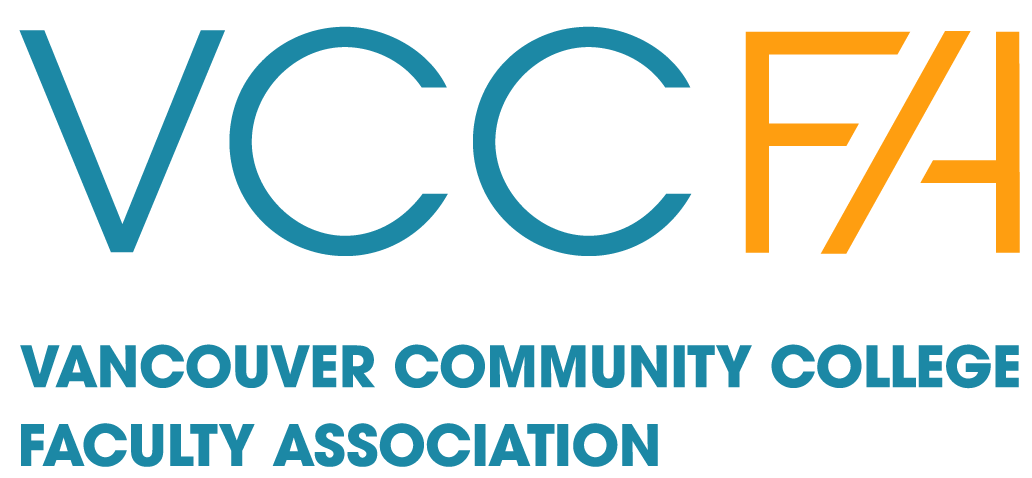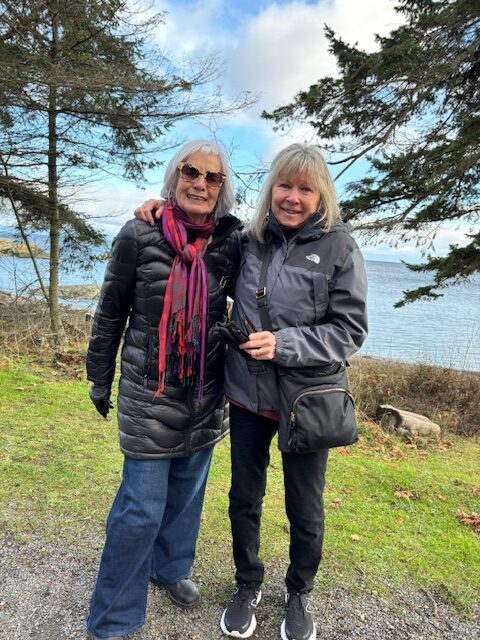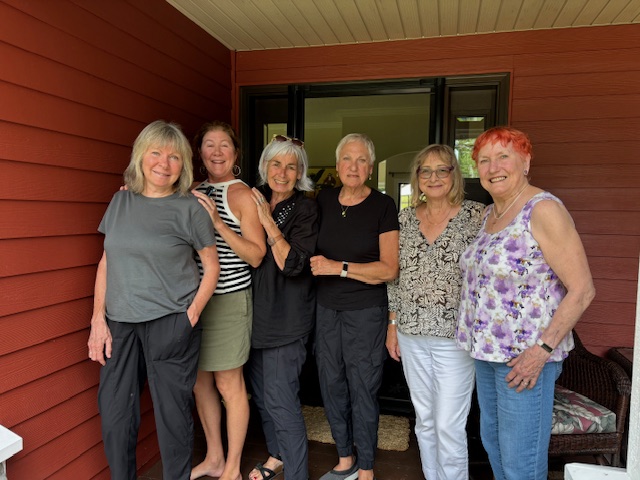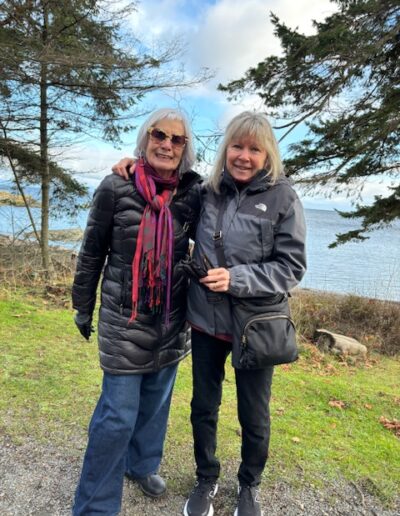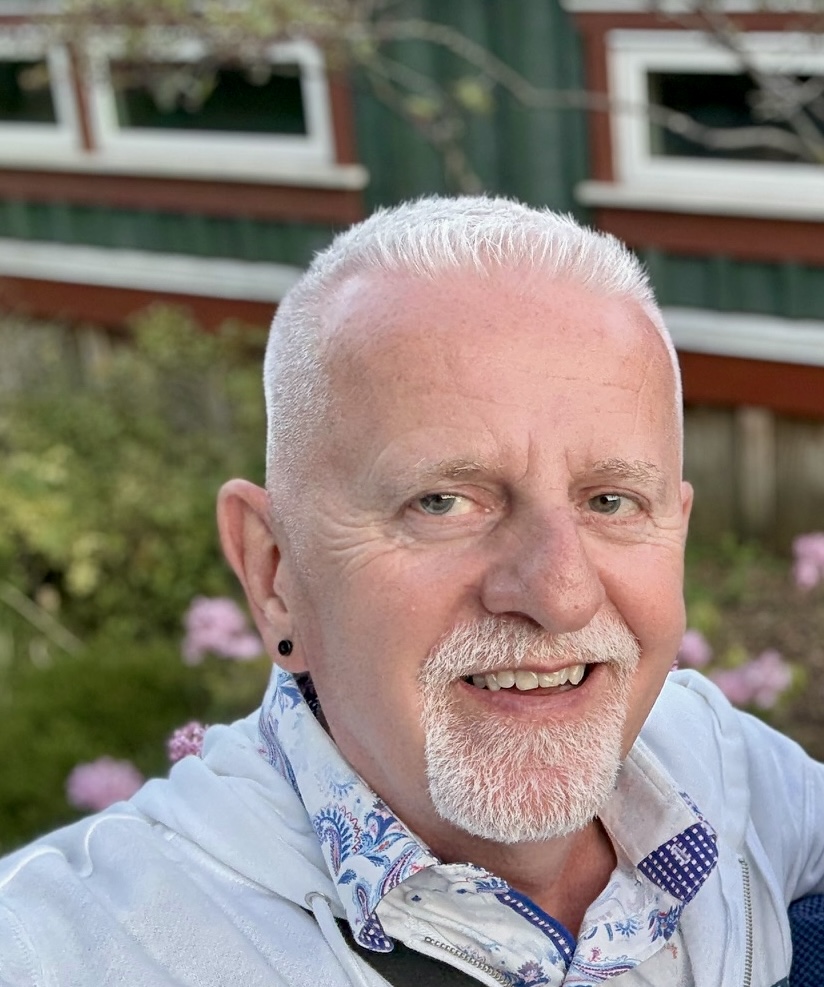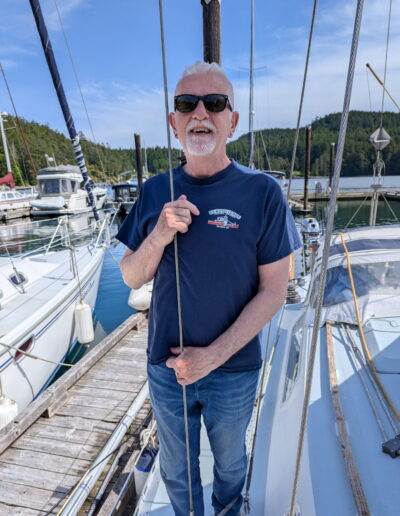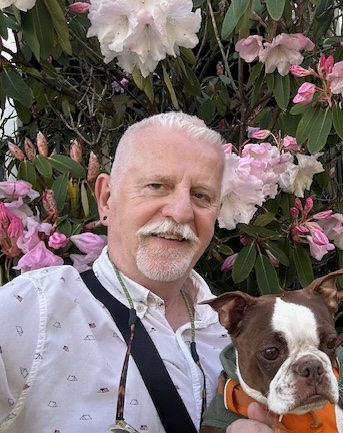Honorary Faculty Members
We are grateful to our honorary VCCFA members, strong union leaders dedicated to improving working conditions and rights for VCC faculty, and we celebrate them here with their stories.
Meet Our Honorary Members
Scroll down to discover each member’s inspiring journey, achievements, and contributions to our community.
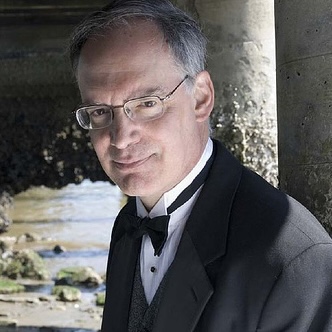
Dave Branter
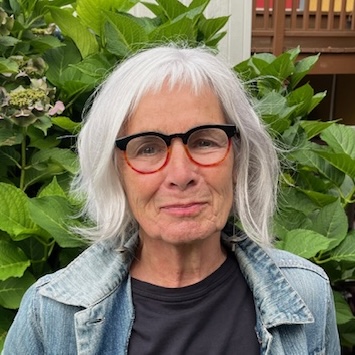
Ingrid Kolsteren

Karen Shortt
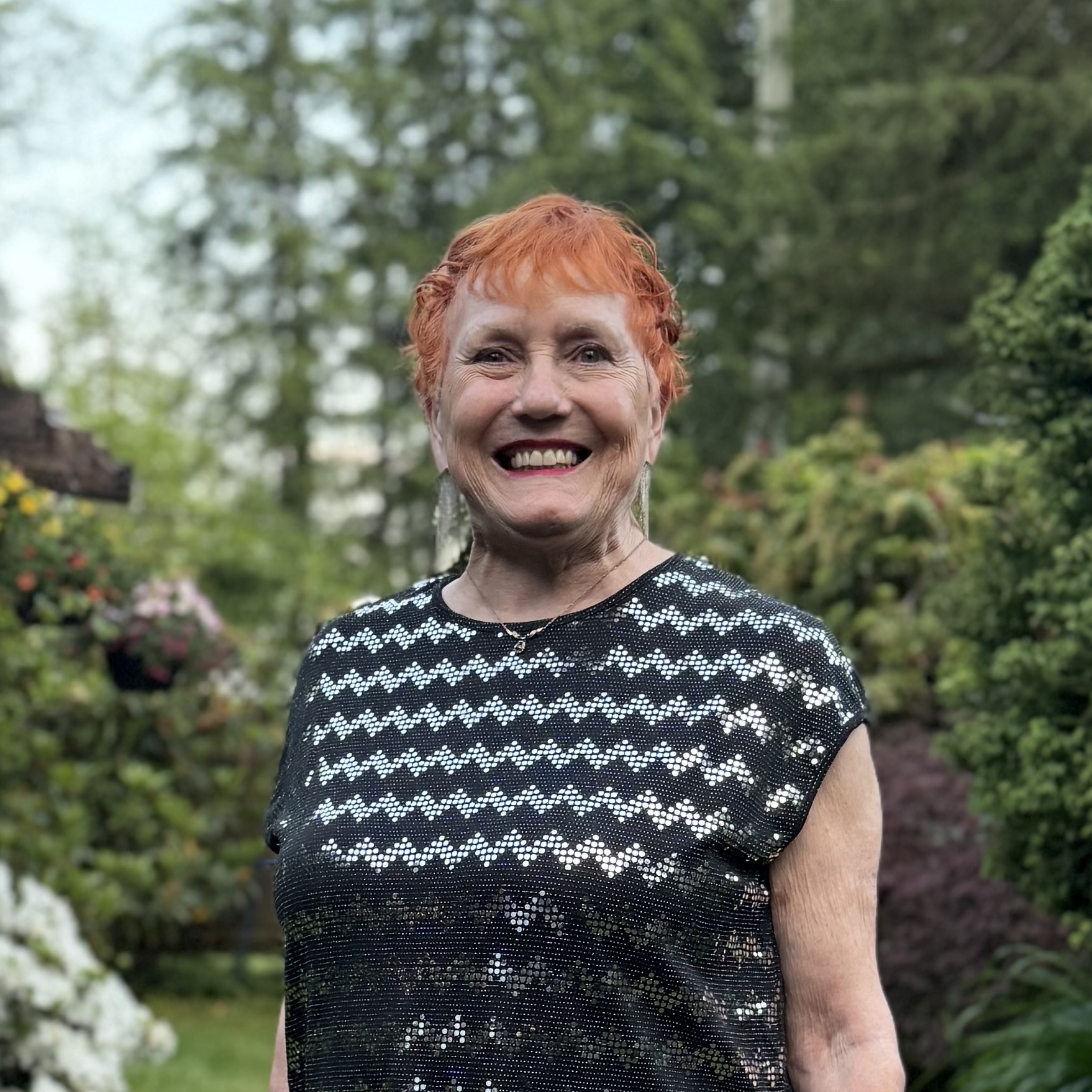
Lizz Lindsay
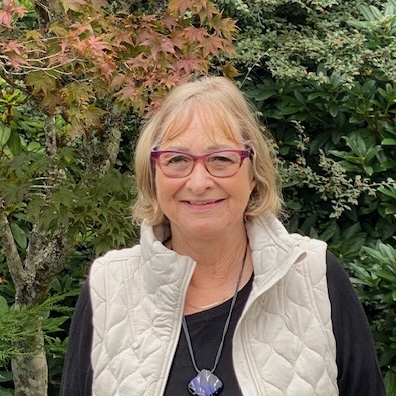
Maggi Trebble
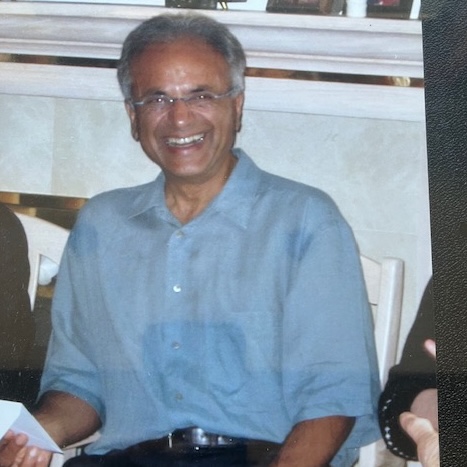
Vinit Khosla
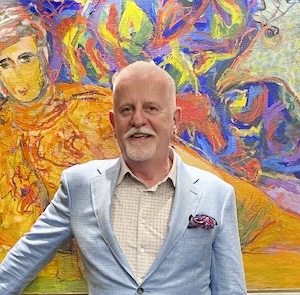
Wayne McNiven
Dave Branter

Interview Video
“All you can do is do it.”
This simple yet profound statement sums up Dave Branter’s approach to his career in education, union work, and leadership. His story reflects a life of dedication, adaptability, and principled service to his colleagues and students.
Early Career and Entry into Education
Dave’s journey into education was driven by a practical need to sustain a career in music. After studying in Indiana and returning to Vancouver in 1977, he began teaching privately and gradually expanded into institutional roles. By 1979, he was teaching saxophone at Vancouver Community College (VCC), and in 1991, he secured a full-time position as department head of music. This role brought stability and marked the beginning of a long and impactful career at VCC. Dave’s commitment to music education was evident in his self-directed schedule and willingness to work beyond standard expectations.
Union Involvement and Evolution
Dave’s union involvement began in 1995 when he joined the bargaining committee while juggling his role as department head and new fatherhood. Though initially hesitant and unsure of his contribution, he found the experience enlightening. His deeper engagement came around 2010 when he was recruited—persistently—by Brenda Appleton (at Karen Shortt’s behest) to fill a vacant executive position in the VCC Faculty Association (VCCFA). From that point on, Dave became a passionate advocate for faculty rights, driven by both the issues at hand and the camaraderie of his colleagues. He described the union team as some of the most principled and dedicated professionals he had ever worked with, and his involvement deepened his respect for the union’s mission and methods.
Philosophy of Unionism
Dave emphasized the importance of embracing one’s identity as a unionist. Influenced by mentors like Frank Cosco and Vinit Khosla, he adopted a principled stance that prioritized collective values and thoughtful advocacy. He admired the VCCFA for its balanced approach, firm in defending members’ rights. Dave believed that union work required not just commitment but cohesion among members, especially during bargaining. He saw unionism not as a role but as a mindset—one that required clarity of purpose, ethical grounding, and a willingness to stand firm in the face of institutional resistance.
...Ingrid Kolsteren
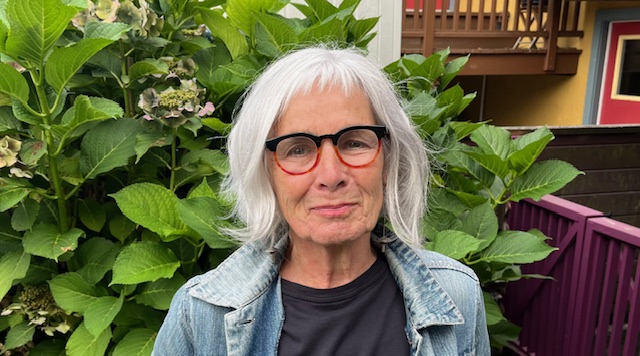
“The union is not just an economic institution—it’s a force for social justice and equity.”
Ingrid’s path into unionism was deeply rooted in her background in feminism, political activism and literacy. Teaching in basic education, she quickly recognized the socioeconomic challenges students faced, many of whom came from working-class or under-resourced backgrounds. This awareness naturally led her to union involvement, where she began as a steward, driven by a strong sense of justice and advocacy for rights.
Her union work, particularly with the Vancouver Community College Association (VCCFA), developed her belief that good working conditions for instructors directly translate into better learning environments for students. Ingrid emphasized that when educators have job security, fair wages, and access to professional development, they are better equipped to support their students and engage meaningfully in college life. Her roles—as steward, chief steward, executive member, and bargainer—were all grounded in a commitment to fairness and systemic improvement. She especially valued the steward role for its close connection to faculty needs and its influence on shaping bargaining strategies. Ingrid says that throughout her union work, she was very much supported and guided by strong union activists such as Linda Sperling (FPSE), Frank Cosco, Lizz Lindsay, and others.
Standing Up for Equity: Ingrid’s Impact Through Union Advocacy
Ingrid’s union work extended beyond VCCFA. Through her involvement with the Vancouver and District Labour Council (VDLC), Women’s Committee, and the Federation of Post-Secondary Educators (FPSE), she connected to the broader labor movements. She found that many challenges faced by unions, whether in education, libraries, or private sectors, shared common roots.
Among her contributions was her role in supporting faculty during layoffs. Ingrid helped push for the implementation of the Voluntary Departure Incentive (VDI), a creative solution that softened the impact of job cuts. She emphasizes that these efforts were never individual victories but collective achievements made possible by a strong, supportive union executive, steward group, and structure. Her work was also instrumental in advancing maternity leave protections for non-regular instructors. Prior to maternity leave for non-regular faculty, new mothers risked losing seniority and security simply for taking time off to care for their newborns. Through arbitration and persistent advocacy, Ingrid and other unionists helped change that, ensuring that starting a family wouldn’t derail a woman’s college career. Ingrid shares a powerful moment when a nursing mother brought her baby to the arbitration hearing, and the union arranged a private space for her, underscoring their commitment to inclusive and compassionate advocacy. Her advocacy alongside unionists like Frank Cosco and Lizz Lindsay, ensured that faculty had the time, support, and resources to navigate these challenges with dignity.
...
“Every single word in that collective agreement was fought for.”
From Legal Assistant to Union Leader
Karen’s journey into education and union activism began unexpectedly. Originally a legal assistant, she responded to an ad seeking adult educators and began teaching legal procedures. Her passion for teaching led her to pursue further education, including a Master’s degree, and eventually to a full-time position at Vancouver Community College. Her transition from private to public education highlighted the contrast in job security and professional support, which sparked her interest in union work.
Entering Union Life: Stewardship and Leadership
Karen’s union involvement began informally, through a chance encounter with a colleague who encouraged her to join the bargaining team. Intrigued by the collaborative and protective nature of union work, she quickly became more involved. She served as a steward, then Chief Steward, and eventually as President of the Vancouver Community College Faculty Association, a role she held for six years.
Her leadership style emphasized learning through observation and mentorship. She credits her early experiences attending HR meetings with unionists like Ingrid as foundational to her understanding of advocacy and negotiation.
Advocating for Equity and Security
Karen’s union work was deeply rooted in a commitment to equity, especially for non-regular instructors, many of whom are women, immigrants, and racialized individuals. She was a strong advocate for job security and fair treatment, recalling how term instructors often lived in fear of contract cancellations every few months.
She fought against proposals that targeted these vulnerable members, such as attempts to cap sick leave. “They have been targeting our most marginalized members,” she says. “It should not be unusual to be hired as a regular instructor from the beginning.”
Karen also highlights the importance of transparency. She believes that when members are unaware of union processes, they may misjudge the union’s effectiveness. In her view, regular communication, visibility at department meetings, and clear explanations of grievance timelines are crucial elements of building trust and solidarity.
Leading Through Crisis: ESL and ABE Campaigns
Among Karen’s proudest achievements were the ESL Matters and ABE (Adult Basic Education) campaigns. These efforts mobilized faculty and students to protest funding cuts and layoffs. Karen helped organize large-scale actions, including a protest at the BC Legislature in Victoria, Vancouver Island, with six busloads of students and faculty members, carrying symbolic yellow umbrellas.
These campaigns not only helped restore some programs but also raised awareness among faculty about the union’s role in protecting educational access and equity. “People see what the union is doing,” she says. “It creates a sense of inclusiveness.”
...Lizz Lindsay
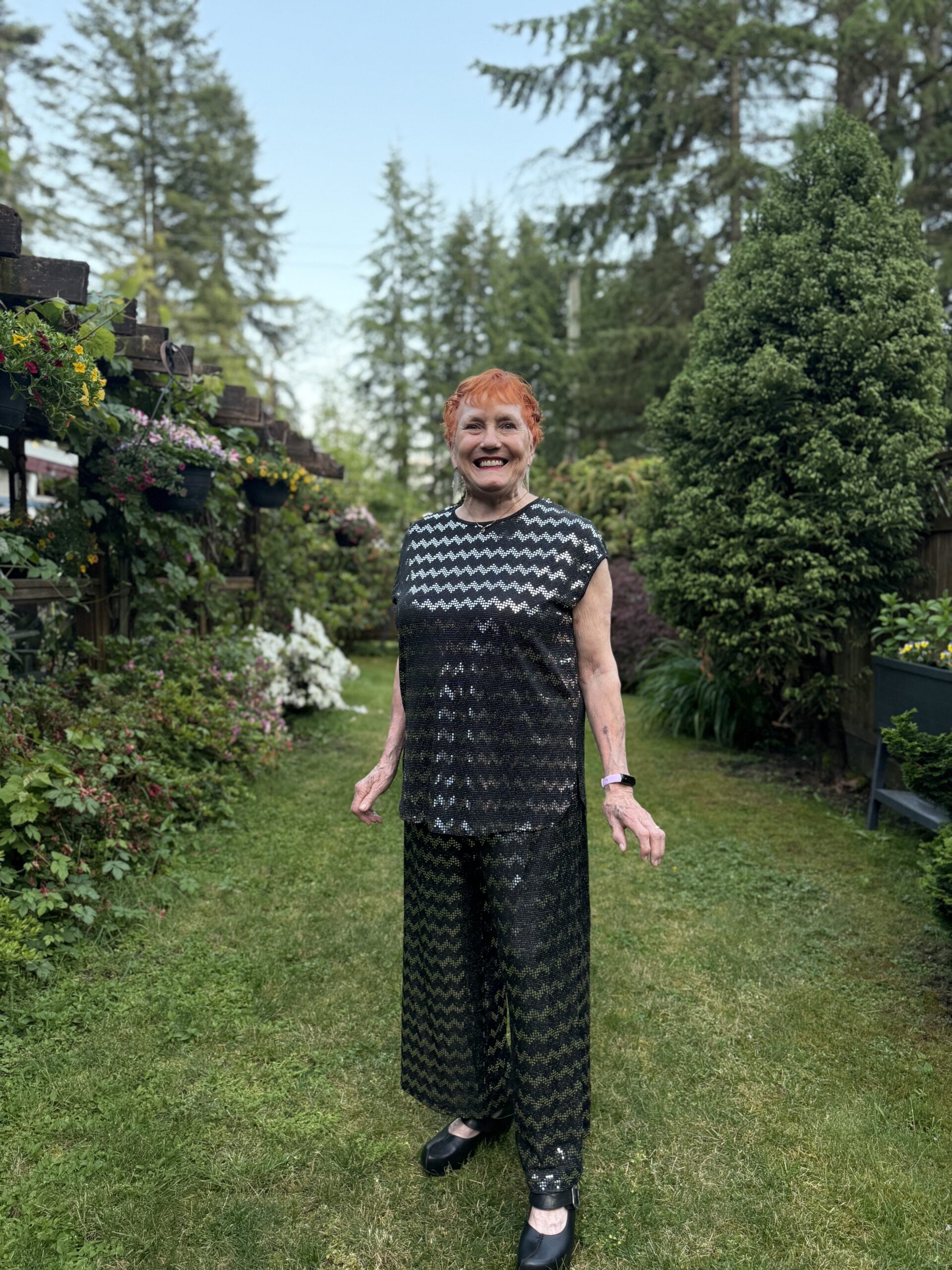
Interview Video
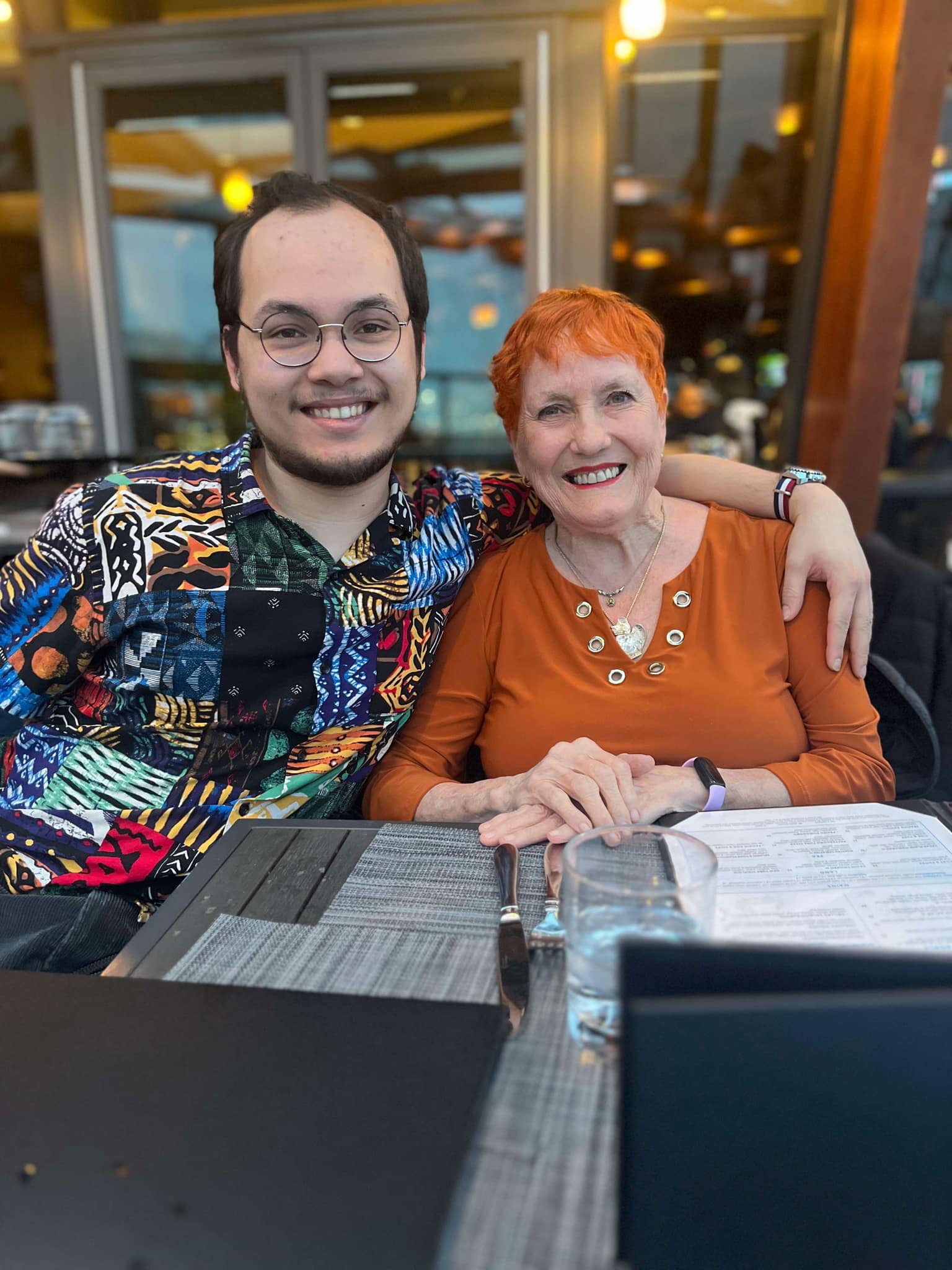
“It was never about me. It was always about us.”
This quote captures the heart of Lizz Lindsay’s decades-long commitment to unionism and activism. Her leadership was rooted in collaboration, collective strength, and a fierce dedication to protecting faculty rights and advocating for the most vulnerable members of the college community.
Journey from Education to Union Leadership
Lizz’s path into education began as a dental assisting instructor at Vancouver Vocational Institute (VVI). Despite facing gender-based pay disparities and limited benefits early in her career, she taught for over three decades, embracing the challenges of vocational instruction and advocating for better working conditions. Her early experiences laid the foundation for a lifelong commitment to equity, education, and activism. Beyond the classroom, her activism took her as far as Venezuela, where she joined a delegation invited by Hugo Chávez to witness the country’s social revolution. She was deeply moved by his efforts to prioritize healthcare and dignity for the poor.
Union Leadership and Collective Action
Lizz’s union involvement began as a steward and evolved into roles as member of the bargaining committee, Chief Steward and President of the VCC Faculty Association (VCCFA). She emphasizes that leadership was never about personal authority but about collective decision-making. During her presidency, the executive team met regularly, maintained detailed records, and operated with shared intelligence. Working alongside unionists like Frank Cosco, Lizz describes the union as a brilliant collective committed to defending the collective agreement and resisting management’s ongoing attempts to erode faculty rights.
Mobilizing Against Cuts and Defending Education
One of the most defining moments of Lizz’s presidency came when the government slashed thousands of seats in Adult Basic Education. These cuts disproportionately affected marginalized students, including immigrants and professionals retraining for Canadian certification. In response, Lizz and the VCCFA launched a powerful campaign, including a symbolic display of 1,000 black balloons, one for each lost student seat. The union took to the media, organized rallies, and fought for early retirement incentives and bumping rights to protect affected faculty. Their swift and strategic response helped highlight the damage and preserve dignity for many members.
Fighting for the Vulnerable
Lizz was especially passionate about defending term instructors and sick members, groups she described as the most vulnerable and frequently targeted by management. Many of the college’s bargaining demands aimed to strip away protections for these members. Without the union’s strength and solidarity, she believes it would be easy to buckle under pressure. But the VCCFA stood firm, consistently advocating for fairness and equity.
...Maggi Trebble
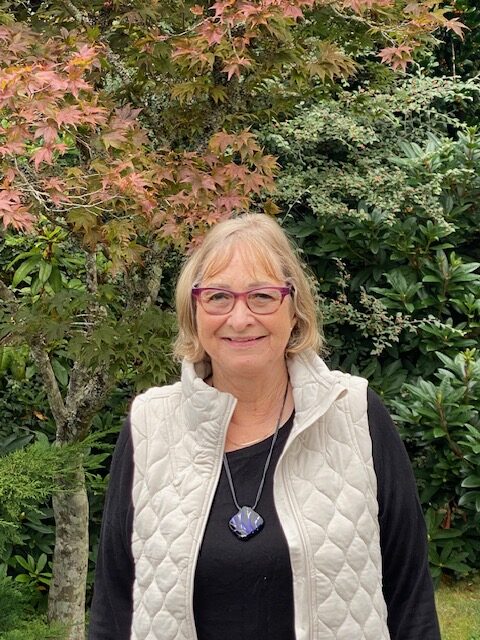
“Being involved in such a democratic organization was seminal for me. I saw how people were listened to, really listened to, and that level of respect and inclusivity is so important in an organization.”
Lifelong Commitment to Education and Social Justice
Maggi’s journey into education and union activism is deeply rooted in her upbringing. Inspired by her mother, who had to leave school at 14 despite a strong desire to continue, Maggi was introduced to the value of education and the importance of financial independence for women. This foundation led her to pursue a career in teacher training in England in 1968, a time marked by global student unrest. The political climate of the time, anti-authoritarianism, feminism, and anti-racism, shaped her worldview and commitment to social justice.
After teaching in England for a few years, Maggi immigrated to Canada, where she initially faced challenges in having her qualifications recognized. She worked with women’s health collectives and immigrant women, which eventually led her to teaching English as an Additional Language (EAL), a role that perfectly aligned with her passions and background.
Breaking Barriers in a Male-Dominated Union
When Maggi first became involved with the union at her college, it was, in her words, “a bit of an old boys’ club.” Department heads held key union positions, creating a conflict of interest for faculty seeking support. However, change was on its way. Influential figures like Frank Cosco, who was in Maggi’s department, along with others on term contracts, began advocating for non-regular faculty and pushing for a more democratic and inclusive union structure.
Maggi was part of this movement, gradually becoming more involved and eventually serving as a steward, executive member, and bargaining committee member. She credits the transformation of the union to a collective effort led by visionary leaders who prioritized inclusivity, transparency, and grassroots engagement, along with social justice values.
The Power of Listening and Solidarity
One of the most notable aspects of Maggi’s union experience was the culture of listening and respect. She recalls how the bargaining committee once visited her off-campus workplace during her lunch break to discuss an issue she was facing. “That kind of action was so valuable,” she says. “It builds activism because when you get listened to, you feel like you can speak and get involved. It’s empowering.”
Maggi emphasizes that the union’s strength lies in its ability to support the most vulnerable members, like non-regular instructors, those on sick leave, and others facing precarious employment. She praises the steward system for its effectiveness in addressing individual concerns and fostering a sense of community.
...Vinit Khosla
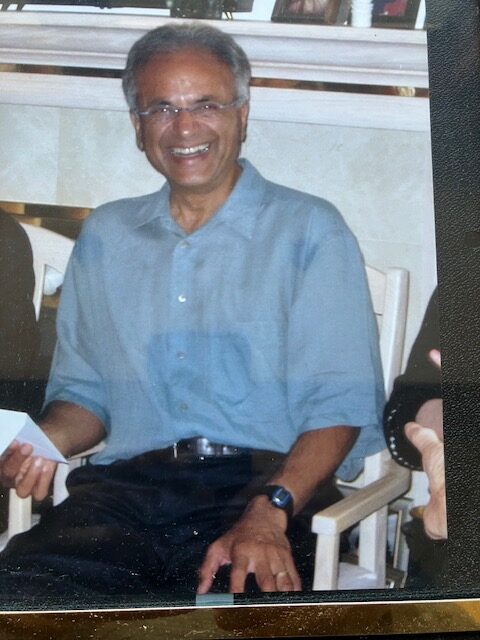
Interview Video
“The strike really created a sense of solidarity among members… it built my own understanding of what it means to be in a union.”
Vinit Khosla, reflecting on the 1990
From ESL Instructor to Union Advocate
Vinit’s journey into union activism began in 1974, shortly after he started teaching ESL at Vancouver Community College. At the time, he had no prior experience with unions and little understanding of their role. But a strike that same year, which was his first exposure to collective action, sparked his curiosity. As a teacher of newcomers to Canada and working long hours in night school, he began to notice inequities in how faculty were treated. ESL, vocational, and adult education instructors were often seen as “second tier” compared to their academic counterparts. This sense of marginalization, combined with dissatisfaction over working conditions, planted the seeds of his union involvement.
A Shift in Bargaining Culture
Vinit’s formal union work began in the late 1980s when he joined the VCCFA negotiating committee. He quickly became disillusioned with what he described as a “patriarchal” approach of the management. He felt the union leadership at the time was too willing to compromise, often resolving issues informally over coffee rather than asserting faculty rights at the bargaining table.
This dynamic began to shift as new voices, including Vinit’s, joined the committee. Alongside colleagues like Frank Cosco, he helped lead a more assertive, member-driven approach. He eventually became co-chair of the negotiating committee and later served as chief steward, a representative on provincial bargaining bodies, and a member of the Pension Advisory Committee. His leadership helped redefine the union’s posture from conciliatory to more assertive, with an understanding that bargaining should be approached with clarity and purpose.
The 1990 Strike: A Defining Moment
The 1990 strike was a turning point for both VCCFA and Vinit personally. He describes it as a time of “incredible energy,” when the executive and bargaining team were able to harness deep reservoirs of member support. The strike not only unified faculty across departments but also expanded Vinit’s sense of solidarity beyond his own ESL colleagues. Through department visits and organizing efforts, he built relationships with faculty he had previously never interacted with.
...“The Faculty Association wasn’t just about protecting individual rights—it was about protecting all of our rights. It was about us.”
A Lifelong Commitment to Education and Advocacy
Wayne’s journey into education began with a desire to become a teacher, inspired by both the shortcomings and strengths of his own educators. His early exposure to diverse teaching styles sparked a passion for making learning enjoyable and meaningful. This passion led him from primary to secondary and eventually to adult education. A pivotal moment in his development as an advocate came during his volunteer work in Botswana with Canadian Crossroads International. There, he taught in a rural village under challenging conditions, which awakened his voice for representation and justice. This experience laid the foundation for his future union involvement and advocacy work.
From ESL to Disability Advocacy at VCC
Wayne’s first encounter with Vancouver Community College (VCC) was in the early 1980s when he and his partner took ESL and Japanese courses in preparation for teaching abroad. Although their time in Japan was brief, it marked the beginning of Wayne’s connection to VCC. Years later, while training to become a Waldorf educator, he learned of an opportunity at VCC to develop and teach an employment preparation program for students with disabilities. His background in the disability field made him a strong candidate, and he embraced the challenge. This role not only allowed him to contribute meaningfully to inclusive education but also opened doors to broader involvement in the college community.
Championing Professional Development
One of Wayne’s most significant contributions to VCC and the faculty association was his work with professional development (PD) funds. He served on the PD funds committee for most of his career, eventually becoming the go-to person for all things related to PD. Through provincial bargaining, the faculty association secured adjudicated PD funds, and Wayne played a central role in developing the framework for their use. He created guidelines, ran workshops, and supported departments and individuals in accessing funds for conferences and educational opportunities. His efforts enabled entire departments, such as Culinary Arts, to participate in international exchanges and brought global perspectives back to VCC. Wayne’s leadership in this area was widely appreciated and left a lasting legacy.
Union Involvement and Leadership
Wayne’s union journey began in a department known for its strong union orientation. Encouraged by colleagues, he joined the PD funds committee and gradually became more involved, eventually serving as a shop steward for 12 years, a department head for two terms, and a member of the executive for six years. His roles gave him deep insight into the collective agreement and the workings of the faculty association. He participated in several rounds of bargaining, learning from seasoned union leaders like Frank Cosco, Ingrid Kolsteren, Brenda Appleton, and Maggi Trebble. Wayne emphasized the importance of collaboration with administration, noting that mutual respect often led to productive outcomes. His balanced perspective, shaped in part by his partner’s background in federal administration, helped him navigate complex dynamics with empathy and effectiveness.
...Stay Connected
For any questions or inquiries, please contact us at: info@vccfa.ca
